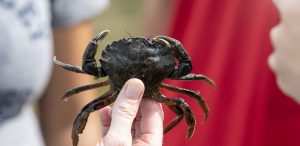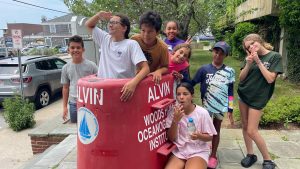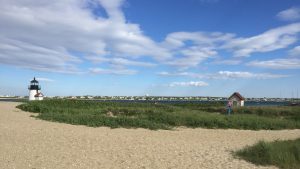Search results for: VIPREG2024 how to get free promo code in 1xbet Cambodia
Role of Sediment Resuspension in the Remobilization of Particulate-Phase Metals from Coastal Sediments
Role of Sediment Resuspension in the Remobilization of Particulate-Phase Metals from Coastal Sediments Kalnejais, L.H., W.R. Martin, R.P. Signell, and M.H. Bothner Environ. Sci. Technol., Vol. 41, pp. 2282-2288, 2007 WHOI-R-07-010
Read More“Marine Invaders” Educator Workshop Scheduled for December
Marine Invaders: Green crabs and other species are the featured subjects in the next WHSG Topics in Oceanography (TIO) workshop for informal and formal educators grades 6-12. The workshop is scheduled for Friday, December 3 from 9 a.m. – 4 p.m. at the Woods Hole Oceanographic Institution. The Woods Hole Sea Grant Program, WHOI Information Office,…
Read MorePreserving Our Homelands Camp Comes to WHOI
Most science educators will tell you, if you want to get kids excited about science, you have to actually do science. Last summer WHOI Sea Grant had the opportunity to participate in the annual “Preserving Our Homelands” (POH) camp, an interactive summer science camp for Mashpee Wampanoag Tribal middle schoolers. Through activities and outings, including visits…
Read MoreNantucket Coastal Conference 2023
Nantucket Coastal Conference Nantucket Atheneum 1 India St. Nantucket, Mass. June 12, 2023 View a recording of the conference Agenda 9:30 am – 9:45 am – Welcome and Kickoff Brief introductions and welcome to the Nantucket Atheneum. Coffee, tea, and pastries served. Water refill stations available. 9:45 am – 10:30 am | Keynote Speaker:…
Read MorePerformance Requirements in Ocean Mineral Development
Performance Requirements in Ocean Mineral Development Hoagland, P. Marine Policy Reports, Vol. 9, No. 3, pp. 5-10, 1987 WHOI-R-87-001
Read MoreBeach and Dune Profiles: An Educational Tool for Observing and Comparing Dynamic Coastal Environments
Beach and Dune Profiles: An Educational Tool for Observing and Comparing Dynamic Coastal Environments Helpful to educators and students. WHOI Sea Grant Marine Extension Bulletin, 6 pp., 2001 WHOI-G-01-001
Read MoreAvailability Calendar
Availability Calendar Free Calendar by Brolmo.com
Read More


